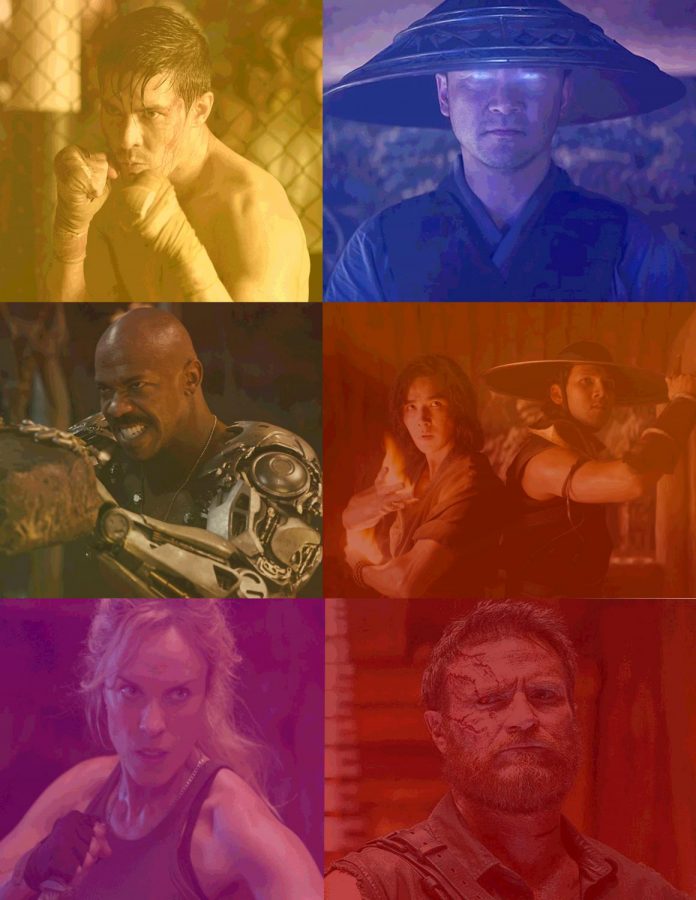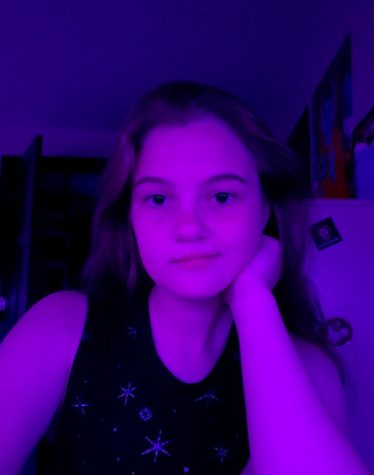Mortal Kombat 2021: ‘meh’ with a side of disappointment
Based off the popular arcade game franchise, ‘Mortal Kombat’ follows a band of champions chosen to fight for Earth in a ruthless death match.
May 24, 2021
Fans have long anticipated the release of the newest “Mortal Kombat” movie, and for a while, it seemed the film would never come. Now in 2021, after 26 years of waiting, multiple delays and pushbacks, the day finally came. Then suddenly, millions of millennials around the globe cried out in anguish and voiced their disappointment.
There are a few main criticisms of the film that most viewers can agree on, such as the weak character arcs, strange script choices and low-brow acting. As Rotten Tomatoes critic Kevin Maher put it, “It’s half Avengers wannabe, half martial arts exhibition match, but, alas, all dull.” And it is true, that these are all fatal flaws that drag the movie down, perhaps one of the most noticeable flaws being the bad acting. Though I do admire the director’s choice to give roles to professional martial artists, many of their performances are rather weak, which may have more to do with the script than the fault of the actors.
Regardless, there are some moments in the movie where Lewis Tan’s portrayal of protagonist Cole Young is too reminiscent of a cheesy 90s flick, and not in an endearing way. Every character feels like they have been relegated to lifeless action figures, mainly in the movie to give the audience exposition dumps and fight the baddies. Liu Kang is reduced to a stereotypical quirky monk, Kung Lao’s arrogance is played up so much it is practically his only character trait, the villains are just sort of there; every character is just a shadow of what they could be. Even the legendary soldier Sonya Blade was downplayed as the “woman who must prove herself to men.” None of the characters we are supposed to sympathize with are interesting or likable, which diminishes the audience’s emotional investment in the story. Strangely enough, the most charismatic and entertaining character on screen is the murderous sociopath Kano, played by Josh Lawson. Lawson’s performance brought Kano to life, and the contrast between his role as comedic relief and his criminal persona is fun to watch.
Then of course there were also some editing and script problems in “Mortal Kombat.” Halfway through the film, it is painfully obvious that the final act was extremely rushed. And one major question that still lingers; why add so many jump cuts? The dreaded jump cut has been used by modern filmmakers to conceal bad takes or stunt errors and is hardly ever used responsibly. Unfortunately, this type of bad editing is ingrained in modern-day film production, and ”Mortal Kombat” could not escape it. There are great CGI graphics and visual effects, but the way the movie is shot and pieced together is a bit lackluster. It looks more like your average cable show than a million-dollar blockbuster. On the bright side, if you came to “Mortal Kombat” specifically for the violence, on that particular aspect, the movie is fantastic. The digitally rendered bloodbaths are beautifully executed, and pay proper homage to many of the game’s fatalities (I suppose that is where the budget went).
Then, came the confusing plot elements. Not just plot holes, but poor setup and pay-off. When scripting a movie, directors must be aware of how each choice made contributes to the story at large, and how an introduced concept should be developed further along the way. This grand, high-risk tournament is set up to be a main plot point, only to go nowhere. There are so many elements that are either underdeveloped or dead ends, and it makes the entire film feel like a rushed prequel marketed to people with the promise of bringing back those sweet 90s memories.
To recap, the movie is packed to the brim with bland characters, plot inconsistencies, and uninspired cinematography. But in reality, the biggest issue is not at all related to production or writing but instead a problem that is much more widespread in the movie industry: catering to nostalgia. “Mortal Kombat” ultimately suffers from offering too much fanservice and pandering to the millennial generation specifically. The purpose of rebooting a movie, if any, should be to introduce a franchise to the new viewers by reinventing the story, while still keeping original elements for older fans. Though “Mortal Kombat” attempts to be palatable for a new audience by adhering to the superhero movie formula, the movie ultimately becomes a reel of references and easter eggs that fails to immerse newcomers. We have seen this in many reboots over the last years; it was apparent in “Transformers,” “Jumanji,” “Halloween,” etcetera. Not to say that using nostalgia as a storytelling guide is always a bad thing, but when it is the driving force behind all marketing and creative decisions, the result is always disappointing.








